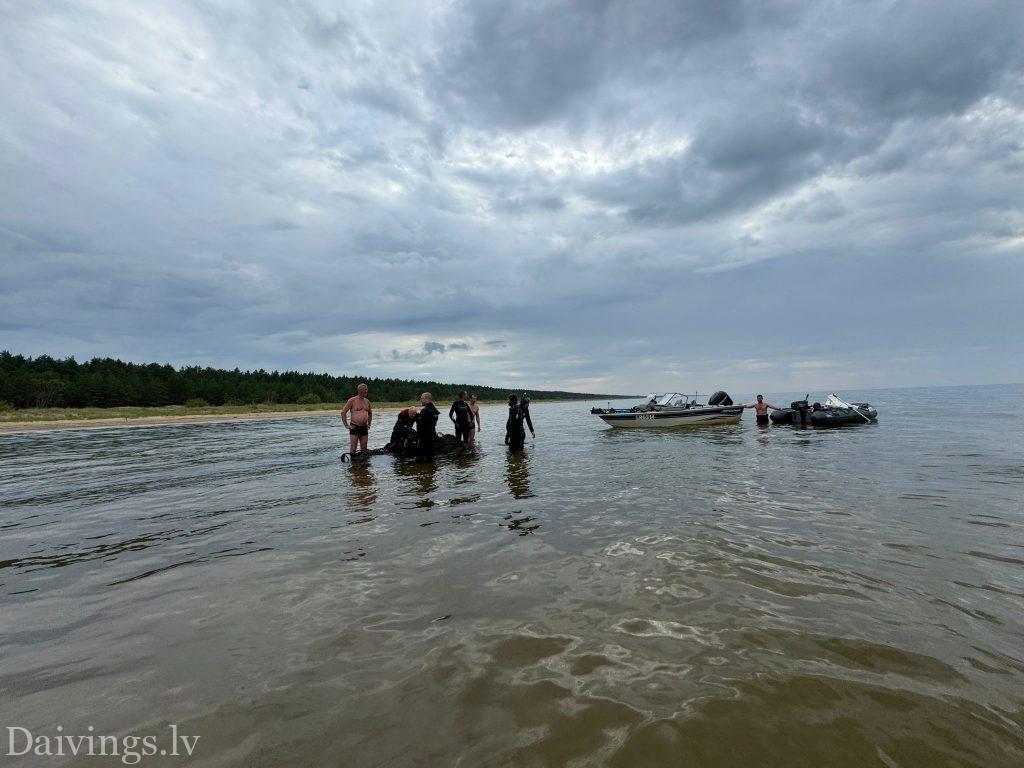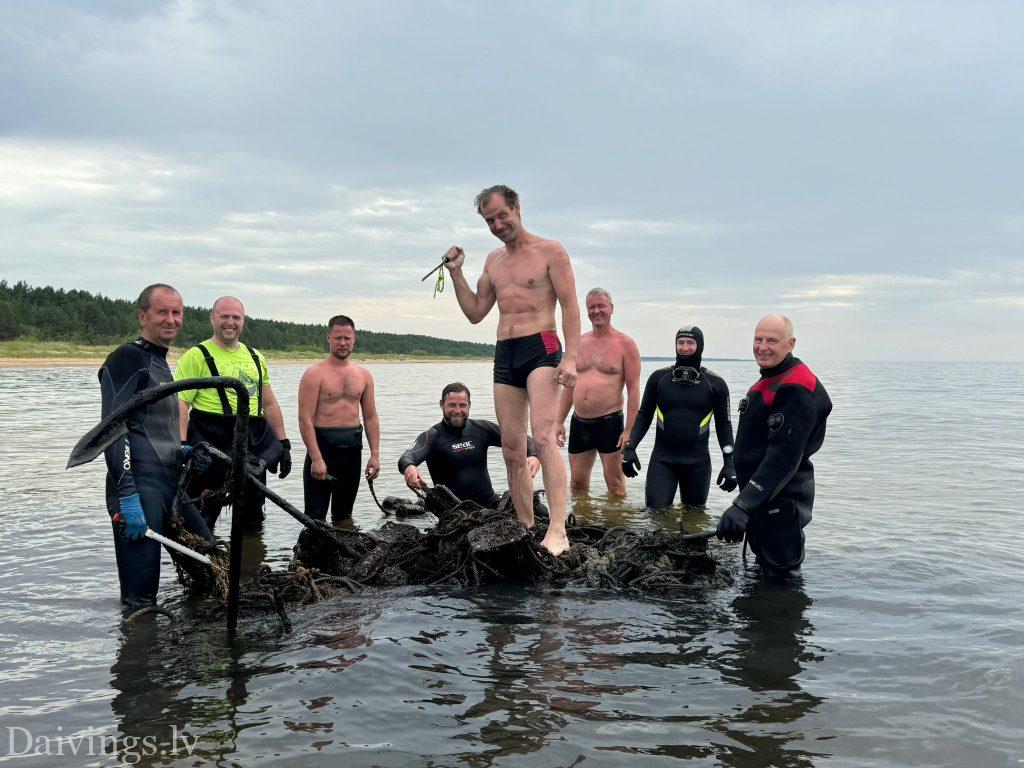Ghost nets are invisible sea traps that continue to cause great damage to the Baltic Sea ecosystem. These nets, lost or abandoned by fishermen, become deadly traps for thousands of marine life. Ghost nets have no place in the Baltic Sea: divers work to keep the environment clean. But there is also good news - brave divers from the "DAIVINGS.LV" club are determined to change the situation!
Why are ghost webs so dangerous?
- Continuous “fishing”: Even after the nets are abandoned, they continue to catch fish, shellfish and other marine life, upsetting the natural balance.
- Deadly Traps: Many sea creatures get caught in the nets and suffocate or get injured.
- Plastic pollution: Over time, the nets break down into smaller particles that pollute the sea and enter the food chain.

Divers - sea rescuers
Divers are among the few who can reach and retrieve ghost nets from the depths of the sea. Their work is not only physically difficult, but also very important:
- Dangerous work under water: Divers manually release the marine animals from the nets and bring them to the surface.
- Data collection: Each dive provides valuable data on the prevalence and types of ghost nets to help improve cleaning strategies.
Why is it important to highlight ghost networks?
- Preserved biodiversity: Fewer animals die and the marine ecosystem can recover.
- A cleaner sea: The amount of plastic and other harmful substances in the sea decreases.
- Sustainable fishing: Fewer fish are caught illegally, which contributes to sustainable fisheries.
- Developed tourism: A clean and healthy sea attracts more tourists.

How can you help?
- Spread the word: Tell your friends and acquaintances about the problem of ghost networks.
- Support cleaning campaigns: Get involved or donate to sea cleanup projects.
- To be responsible: Never throw rubbish into the sea and make sure others do the same.
Together we can make the Baltic Sea cleaner and healthier for future generations!
Did you know about the problem of ghost networks?
- What else do you think we can do to protect our seas?
- Join us and be part of the change!
Table of Contents
Frequently asked questions and answers about ghost nets in the Baltic Sea
1. What are ghost networks and why are they so dangerous?
Ghost nets are fishing nets lost or abandoned by fishermen that continue to 'fish' for marine animals. These networks are very dangerous because they:
- Keep catching animals: Ghost nets continue to catch fish, crustaceans and other marine life, upsetting the natural balance.
- Catch animals: Many sea creatures get caught in the nets and suffocate or get injured.
- Pollute the sea: Over time, the nets break down into smaller particles that pollute the sea and enter the food chain.
2. Why are divers so important in raising ghost nets?
Divers are among the few who can reach and retrieve ghost nets from the depths of the sea. Their work is very important because:
- Directly highlight networks: Divers manually release the marine animals from the nets and bring them to the surface.
- Collect data: Each dive provides valuable data on the prevalence and types of ghost nets to help improve cleaning strategies.
3. What are the effects of ghost nets on fisheries?
Ghost nets negatively affect fisheries in several ways:
- Reduces fish population: Ghost nets catch large amounts of fish, which reduces their population.
- Damages fishing gear: Ghost nets can become entangled with other fishing gear, damaging it.
- Increases the cost of fishermen: Fishermen must devote time and resources to ridding themselves of ghost nets, which add to their costs.
4. What can I do to help?
Everyone can help in the fight against ghost networks:
- Spread the word: Tell your friends and acquaintances about the problem of ghost networks.
- Support cleaning campaigns: Get involved or donate to sea cleanup projects.
- To be responsible: Never throw rubbish into the sea and make sure others do the same.
5. What are the long-term solutions to the problem of ghost networks?
A number of measures are needed to address the problem of ghost networks in the long term:
- Stricter legislation: Stronger laws are needed to ban the dumping of fishing gear into the sea.
- Education: Fishermen and the general public need to be educated about the seriousness of the ghost net problem.
- Innovations: New, environmentally friendly fishing gear that is easier to find and retrieve if lost needs to be developed.
- Cooperation: Close cooperation between governments, non-governmental organizations and the private sector is needed.
Together we can make the Baltic Sea cleaner and healthier for future generations!
Contacts: https://www.facebook.com/divings/

